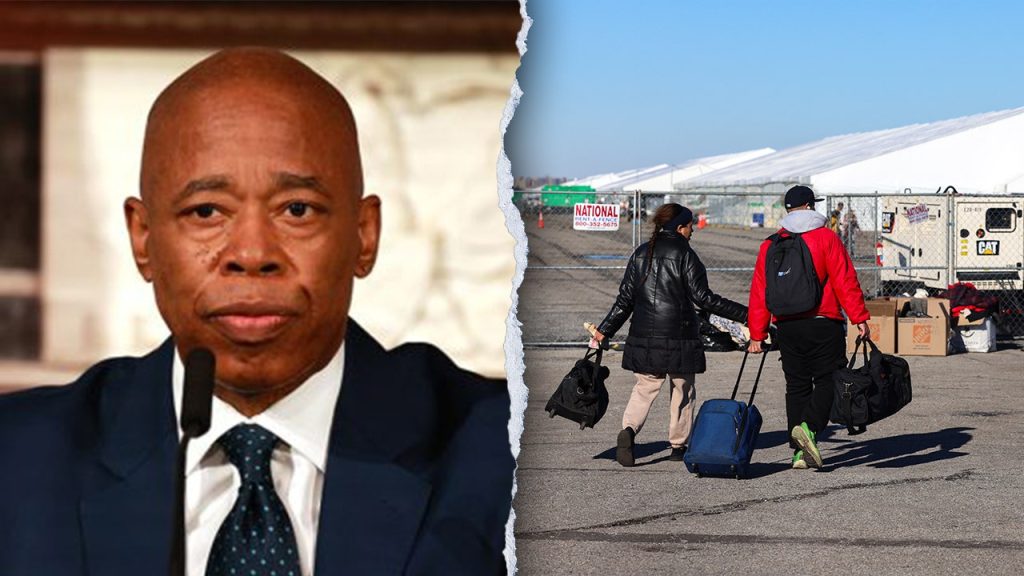More than 1,000 migrants living in taxpayer-funded upstate New York hotels are being told they must leave by the end of the year as a contract with a housing provider is set to expire. New York City had relocated the migrants to Albany due to an unprecedented surge of migrants arriving in the Big Apple under the Biden-Harris administration. The migrants have been informed that they must find other accommodation, and the city is offering free transportation and assistance with their next steps. Migrants will be transferred to state or local housing programs, transported to friends or relatives in New York City, or brought back to the city’s arrival center for asylum-seekers.
The remaining 1,800 migrants staying in upstate hotels are planned to be relocated into permanent housing by the end of the year, including through voluntary state-funded programs. The state Office of Temporary and Disability Assistance reported that 415 families had already been relocated to permanent housing outside of New York City, including 114 in Albany County. Additionally, Albany County Sheriff Craig Apple has warned that members of the deadly Tren de Aragua gang have spread to the state capital, posing a potential threat to the community. The gang has committed crimes in multiple states, raising concerns about their presence in the area.
Despite a significant drop in migrant encounters at the southern border, New York City continues to spend billions on the fallout from the border crisis, with estimates projecting costs to exceed $5 billion and potentially reach over $10 billion by the end of the next fiscal year. The city’s use of hotels to house migrants will continue, as the Department of Homeless Services seeks a contract with hotels to provide a total of 14,000 rooms for sheltering migrants. The city is projected to spend $2.3 billion on housing over a three-year period, with a significant portion allocated to renting hotels for migrants.
The shelter system and coffers of New York City are under immense strain due to the migrant crisis, with the city spending billions on addressing the fallout. An average of $352 per night is projected to be spent on providing shelter, food, health care, and education to migrants, with spending expected to exceed $5 billion. Mayor Eric Adams has warned that costs could escalate to over $10 billion, and the city has entered into new contracts totaling $40 million to service migrants at hotels used as emergency shelters. The crisis has had significant financial implications for the city and raised concerns about the long-term sustainability of the current approach to managing the migrant influx.
In response to the looming deadline for migrants to leave taxpayer-funded upstate New York hotels, New York City has notified them that they must find alternative shelter arrangements. The city is offering assistance with transportation and next steps, including transferring migrants to state or local housing programs or bringing them back to the city’s arrival center. Efforts are being made to relocate migrants into permanent housing with the help of voluntary state-funded programs. Concerns have been raised about the potential presence of the Tren de Aragua gang in Albany, highlighting the challenges faced by the community due to the migrant crisis and its associated risks.
The ongoing migrant crisis in New York City has strained the city’s resources and shelter system, with billions of dollars expected to be spent on addressing the fallout from the border crisis. Despite a decrease in migrant encounters at the southern border, the city continues to house migrants in hotels, with projections indicating escalating costs and financial implications. Mayor Eric Adams has warned of the significant financial burden posed by the migrant crisis, with estimates suggesting costs could exceed $10 billion by the end of the next fiscal year. The city is working to address the challenges posed by the crisis and find sustainable solutions to manage the influx of migrants effectively.













